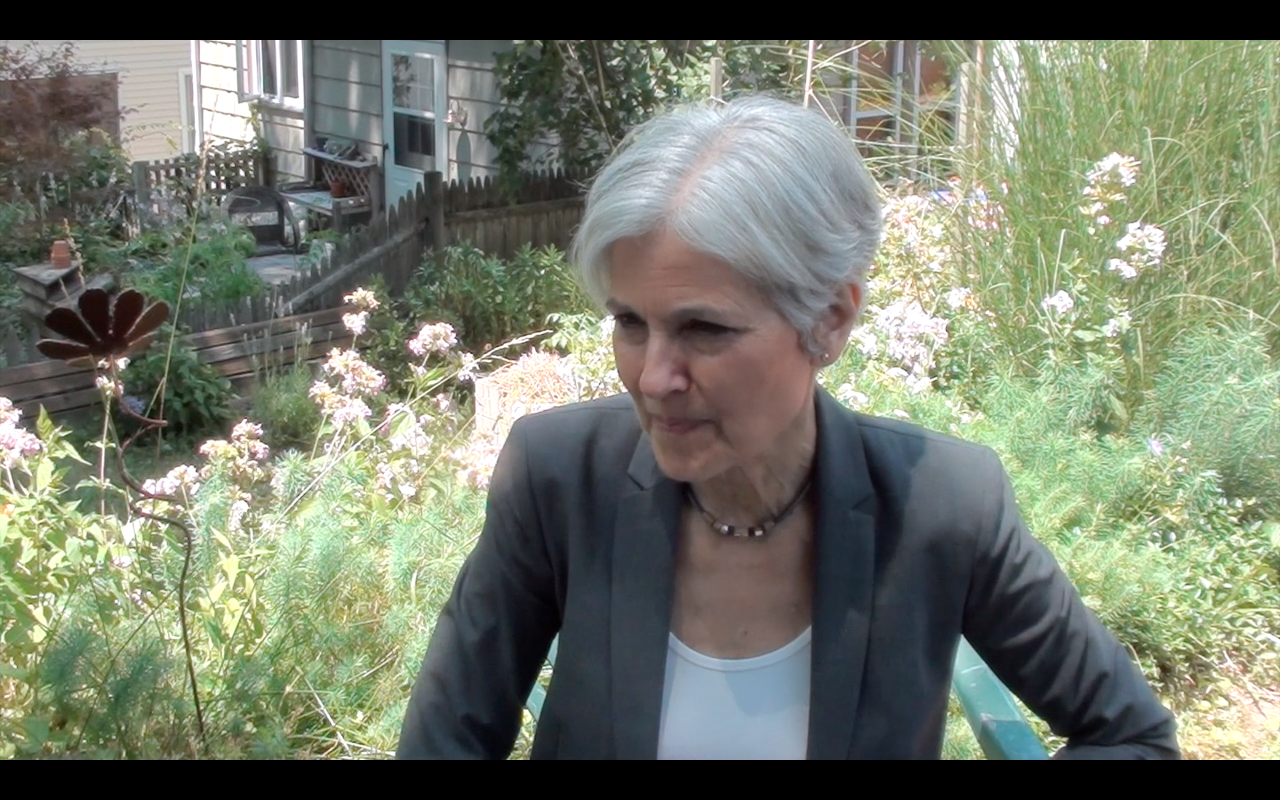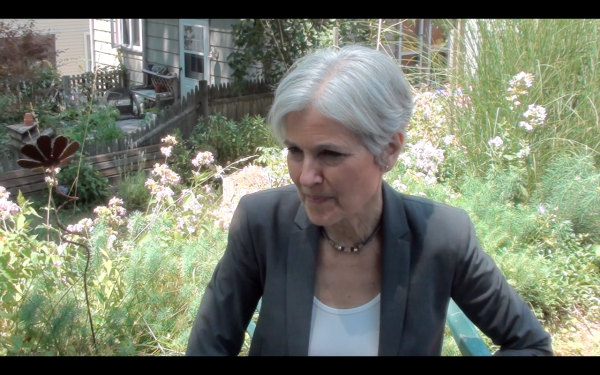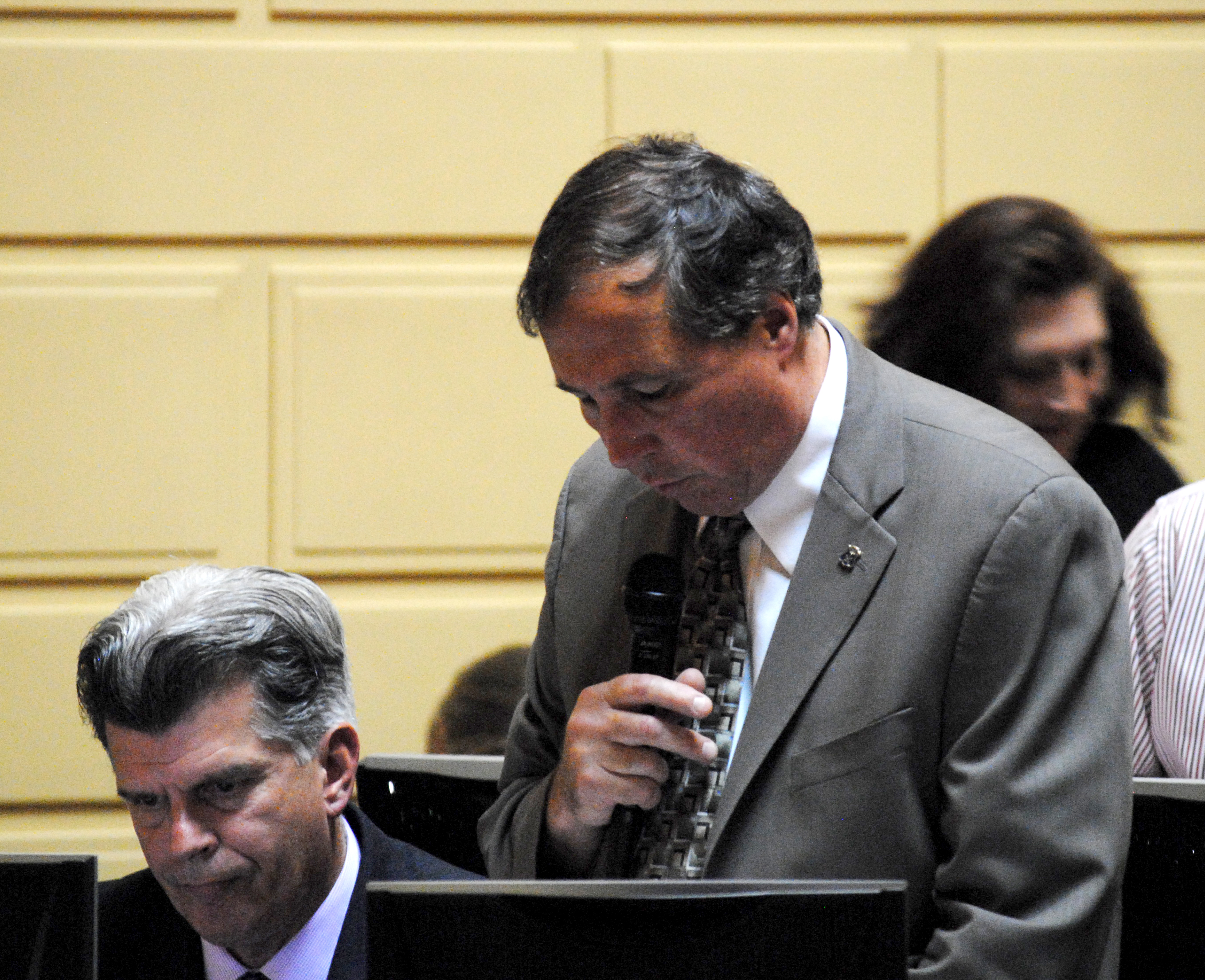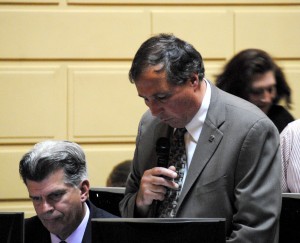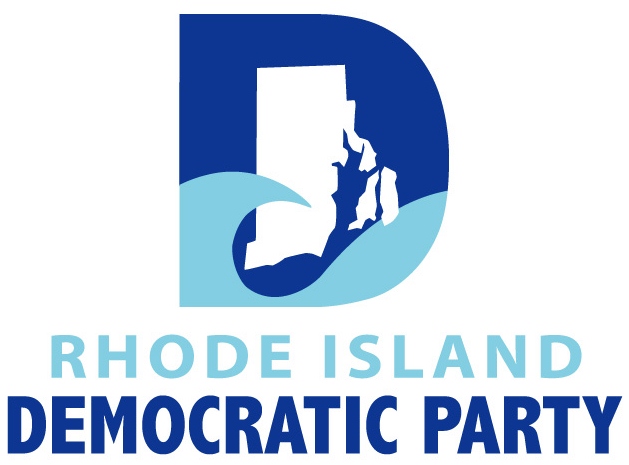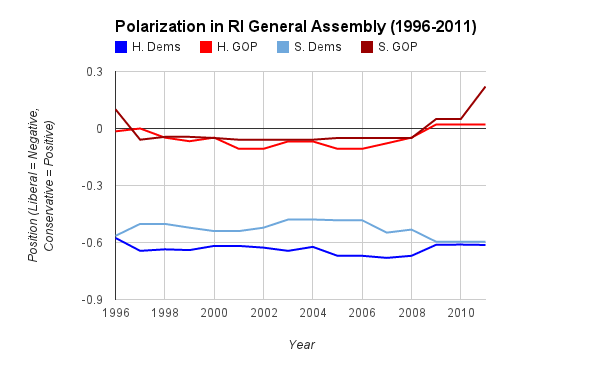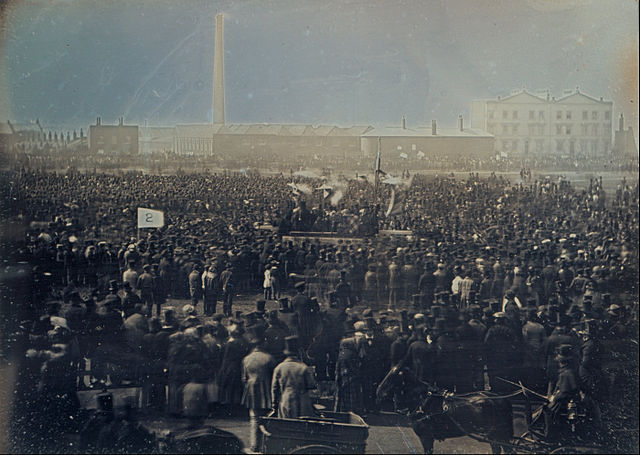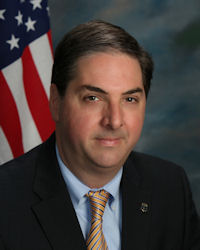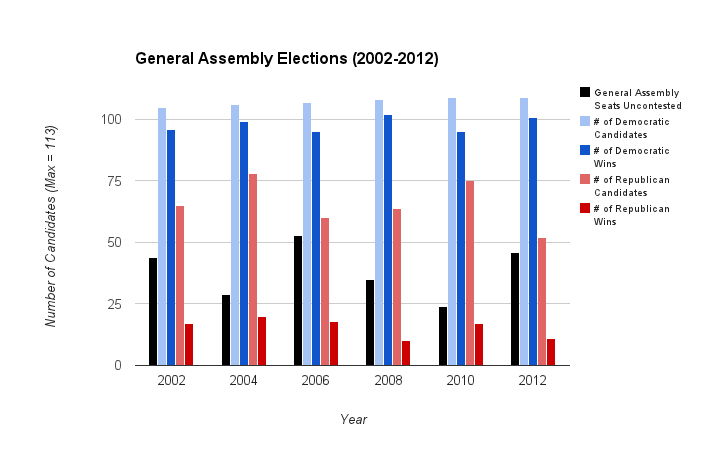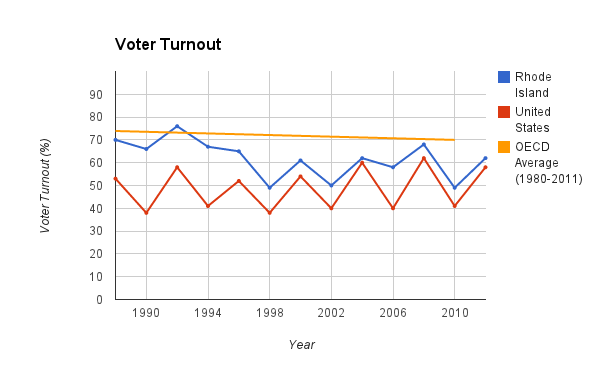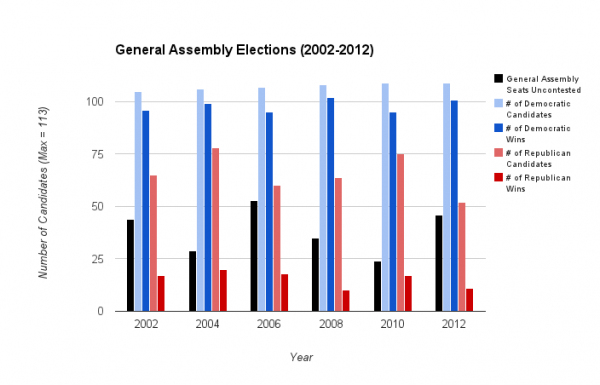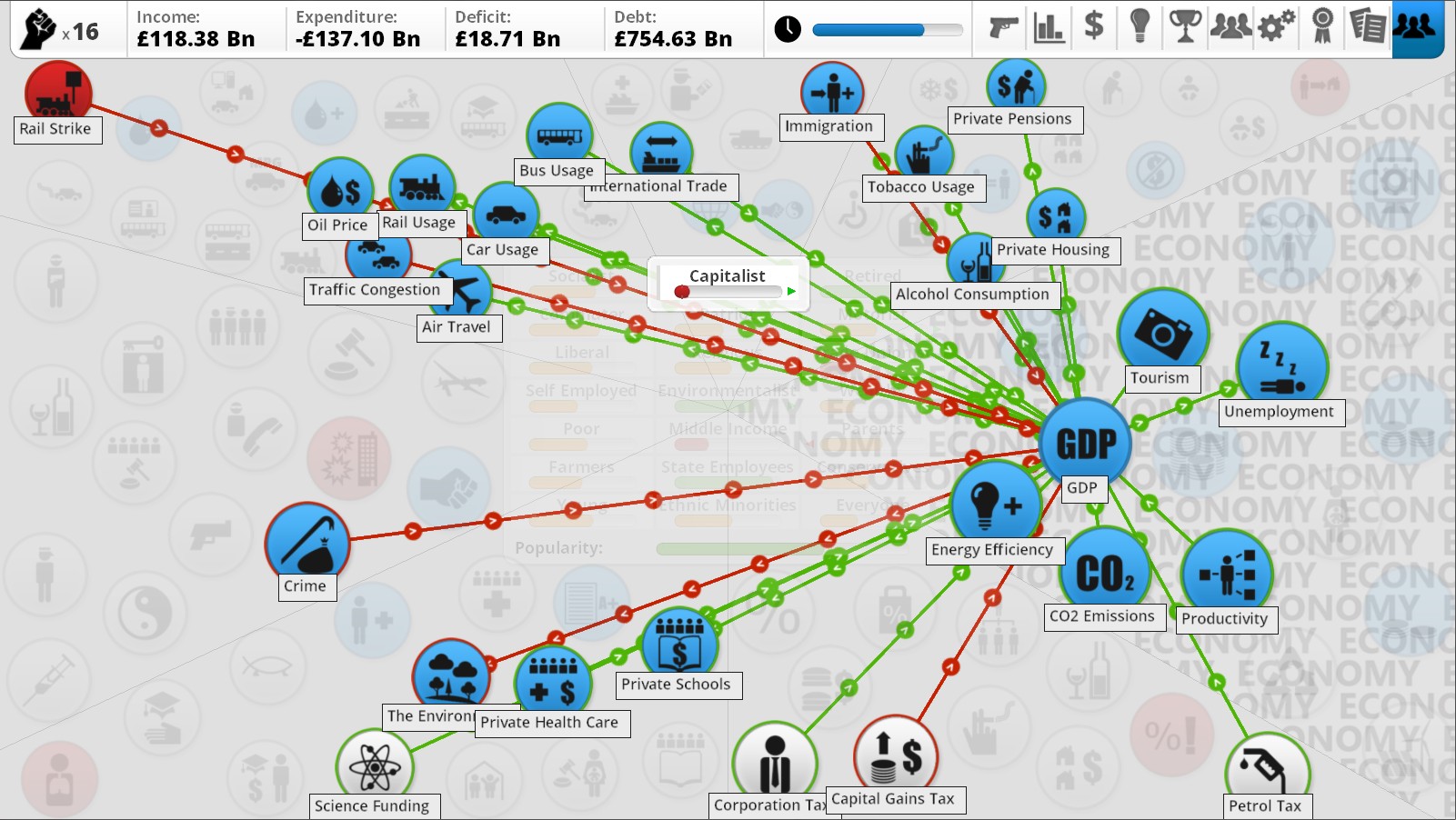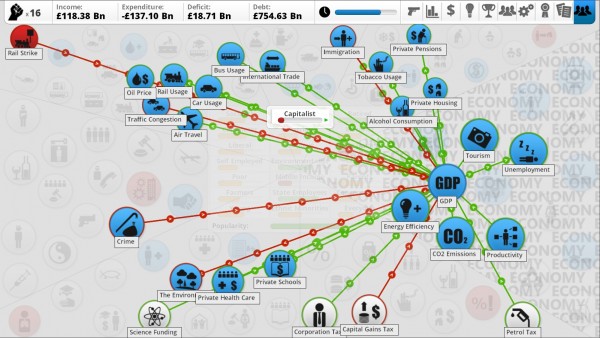Eliminating the master lever was supposed to assist the RI Republican Party (and strengthen RI’s democracy) by assisting in one of the most important things a party needs: candidate recruitment. The problem, as it was posed, was that the prevalence of the master lever basically acted as a deterrent for potential Republican candidates for the General Assembly; why put in the effort of running if loyal Democrats, voting for president or US senator or governor at the top of the ticket, would simply pull the master lever and obliterate down-ballot Republicans? Eliminating the option would allow Republican candidates to run without fear of such occurrences, thereby assisting efforts to recruit quality candidates.
The only issue is that the candidates haven’t materialized. Here’s the graph of seats (Republicans in red, independents in grey) contested by Republicans since legislative downsizing ahead of the 2002 elections:
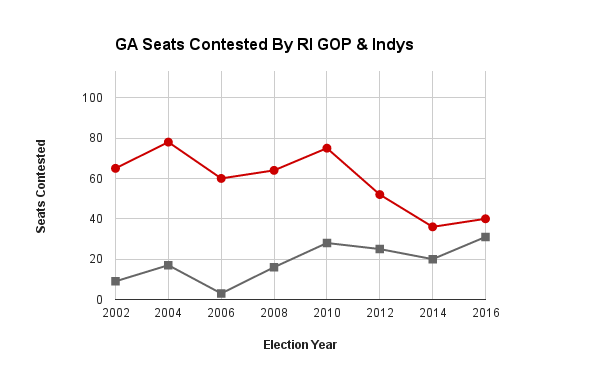
This year, Republicans will contest 40 seats in the legislature. If they won all of them, they would barely break the Democratic supermajority in the Senate, and still fail to do so in the House. Keep in mind, 40 would be about twice as many districts as they have won, ever. There are only about 20 districts across the state that Republicans have ever won. Winning 20 districts would actually make this the most successful year the Republicans have ever had since the General Assembly reached its current size in 2002.*
Simply put, the Republican candidates necessary to make their party a functioning opposition haven’t materialized. And it’s noticeable to me that Republican recruitment issues have grown worse since 2010, when a Republican wave election empowered Republicans nationwide and gave them majorities in both chambers of the U.S. Congress.
The grey line is candidates running as Independents, and the point to notice here is that they have increased the number of seats contested over time. And Independents in Rhode Island often caucus with the Republican Party in the State House (e.g., Blake Filippi) or are already Republicans (e.g., perennial Providence candidate Luis Vargas who volunteered for the RI Republican Party). Not all, mind you, but many would’ve been Republicans.
Notably, these developments (the increasing difficulty of the Republicans to recruit candidates, and the increasing number of Independents) have happened pretty much independently of the master lever’s existence.
But these are just seats. What about the number of candidates? If Republicans have only ever been competitive in about 20 districts, then this could undercount candidates in safe Republican seats.
| Party | Seats Contested | Qualified Candidates |
|---|---|---|
| Democratic | 108 | 138 |
| Republican | 40 | 43 |
| Independent | 31 | 35 |
As you can see, Republicans did fairly well in distributing their candidates for seats; as did the Independents (more remarkable because no one is organizing them). Meanwhile, the Democrats have more than enough candidates to contest all 113 General Assembly seats, but didn’t contest five of them: House Districts 30 (Incumbent: Giarusso – R), 36 (Incumbent: Filippi – I), and 48 (Incumbent: Newberry – R) and Senate Districts 35 (Incumbent: Gee – R) and 38 (Incumbent: Algiere – R).
Democrats’ recruitment advantage continues unabated. In fact, just on the numbers, Democrats could split into three parties that could each match Republican recruitment abilities.
The problem was never going to be the master lever for Republicans. The problem remains (as it has been since 2006) their party’s toxicity to a state that overwhelmingly supports Democratic policies. And even one of the most liberal state Republican Parties can’t overcome that obstacle – especially with Donald Trump on the top of the ticket. At this point, I think Republican hopes for growing their caucus (or even keep it the same size) this election is that the commentary on RI Future here is true: Clinton really is so unpopular that liberals will stay home and they can pick up low-turnout seats. The problem is that the people who dislike Clinton tend to be Republicans, and the people who dislike her as much as Trump aren’t really that big, certain in their choice, or even likely to be Democratic partisans.
Now, am I going to say RI Republicans will be massacred this year? No. I do not have a great track record there. But looking at past presidential elections and RI GA results, I’m going to guess the Democrats should win 100 seats and Republicans should win 12 seats. In each off-year election, Democrats have picked up 96 or 95 seats, and in each presidential year election they’ve picked up 99-102 seats.
The big question for me is what effect Trump will have. RI Republican office-holders have fairly closely embraced their presidential nominee, and nominees can have an effect down the ballot even to state legislatures. Trump seems more of an anathema to the average RI voter than a generic Republican, so theoretically, he could do serious damage to what remains of the RI Republican Party since the Bush years caused the liberal Republican to go extinct.
* An earlier version of this post inadvertently implied that Republicans have never been successful in GA races, that’s obviously not the case.

